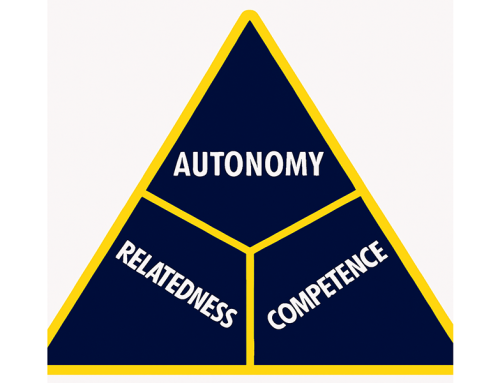If you’re not familiar with the TED talks, I recommend checking them out. Ted.com’s tagline is “riveting talks by remarkable people, free to the world.” The short videos feature entrepreneurs, artists, philanthropists, entertainers, scientists, authors and thought leaders from almost every field. I’ve watched a lot of TED videos, but last week a Burn the Fat reader sent me a link to a controversial new TED video about goal setting that I hadn’t seen before. In this 3 minute clip, successful music entrepreneur Derek Sivers says it’s better to keep your goals to yourself. I respectfully disagree. Well, maybe not entirely… he does bring up some intriguing questions…
Conventional wisdom says that we should tell our friends our goals because that will create accountability and positive peer pressure. That will increase our motivation, help us stick with it through the rough patches and improve the chances of us reaching our goals. Citing psychology research from New York University, Sivers claims that telling someone your goals makes them less likely to happen. According to this research, our minds can be tricked into believing that talking about something is the same as doing something.
In his video from the 2010 TED conference, Sivers has clearly implied that he’s including health and fitness goals in his discussion. However, when I looked up the research paper by Peter Gollwitzer on which his claims are based (in the journal Psychological Science 20:5 pp612-618), I noticed that this theory was based on short term experiments regarding identity-related behavioral intentions about career goals.
One study on psychology students lasted a week. Students were asked to take a survey about their commitment to becoming a psychologist. A week later they were surveyed about how they had acted on their intentions. Those whose intentions remained private acted on their intentions more. Another study involving German law students lasted only 45 minutes.
While interesting, it’s hardly enough to convince me that we can broadly generalize these findings to everyone in every situation.There was no mention of fitness or weight loss goals, no discussion of goals or company vision statements in organizations, no examples of athletic achievements, no discussion of any meaningful, tangible long term goals.
Incidentally, there are piles of research papers and other psychology experts saying the opposite – that sharing goals with those you confide in and even going public with them increases your chances of achieving them. Social psychologist Robert Cialdini for example, with his “commitment and consistency theory,” argues that “once we have made a choice or taken a stand, we will encounter personal and interpersonal pressures to behave consistently with that commitment.”
Social support can be remarkably powerful. It does everything from reducing the effects of stress by lowering cortisol (Journal of Biological Psychiatry, 54: 1389-1398), to increasing compliance to ANY diet and improving long term weight loss maintenance (Journal of consulting and clinical psychology 67:1, 132-138). More and more weight loss studies are beginning to conclude that compliance (your ability to stick with a diet) is more important than which diet you follow. The kicker is, to get support, you have to ask for it and that means sharing your goals like minded, like-valued people.
While I appreciate the way that various thought leaders challenge the status quo and propose new ideas, in the health and fitness arena, my experience leads me to side very strongly with the conventional wisdom – share your goals.
That doesn’t mean constantly bragging about what you’re “going to do”, nor does it mean talking about your goals with just anyone. If you share your goals with the wrong people – those who don’t support you – their negativity could have the opposite effect, because, unfortunately, so many people are critics, saboteurs and dream destroyers.
I’m talking about establishing a real social support system or master mind group where the people with whom you share your goals are positive and committed to helping you achieve them. Social support research out of Brown Medical School specifically focusing on weight loss suggests that the support is most effective only when you associate with other people who are already successful at weight loss and weight loss maintenance.
Who you associate with matters!
It’s not merely about seeking encouragement and motivation either. Sharing your goals with the right people, including with mentors, coaches and teammates, allows you to solicit and access valuable knowledge and tangible resources that can help you achieve your goal faster.
If President Kennedy had simply kept the moon mission to himself and the space administration, I wonder if Americans would have turned on the TV one day and suddenly heard a flash report that a man had stepped onto the moon? I doubt it. The fact is, at the time Kennedy made his famous speech, all of the technology to achieve the goal had not even been invented yet. The public proclamation is what brought together thousands of the nation’s most brilliant minds who, under the pressure of a deadline-driven, publicly shared vision, figured out how to make it happen.
Each individual may be different in how they are best motivated and how they set and achieve goals. Some people are internally self-motivated. Others are more externally motivated. Some people are highly motivated by positive peer pressure and accountability. . For many people, having eyeballs on them, with the prospect of public failure, is a tremendous motivator.Others like to keep quiet and then one day, surprise everyone with their achievements.
That said, my philosophy is: Share your goals. But be selective about who you share your goals with. And Know thyself. Everyone’s personality characteristics are different. Finally, be a doer, not just a talker. it’s one thing to tell people about your goals. It’s another to be the “more talk than action” type of person.
– Tom Venuto
Related Links:
Discover a bulletproof social support system for long term weight loss:
The Body Fat Solution Chapter 9: The Social Support Solution
Scientific goal setting techniques for fitness and fat loss:
Burn the Fat, Feed the Muscle chapter 1: Goal Setting Secrets
How to stick with any diet or training program:
The Most Effective Motivational Force: Accountability
About Tom Venuto







For me, who I associate with makes a world of difference. If I’m hanging out with a bunch of couch potatoes, they could careless if I’ve behaved in terms of eating / working or not. If anything, they’d prefer that I ate like they do so they don’t look so bad.Since I don’t hang around with any specific group of people, I chose to share goals with those that are like-minded. The ones that don’t give a flying fig I don’t push my fitness goals on. If they are happy eating a pint of Ben & Jerry’s before going to bed every night, so be it. I don’t say anything until they start complaining about not being able to fit in their “skinny clothes” and even then, I don’t go into lecture mode as those people know better, they just want somebody to enable their excuse habits.I don’t think there is a right or wrong in this case. It simply depends who the support base is and having the ability to decifer who is benefical and who could / would be toxic. Ya know the “It’s just a ice cream sundaew. Certainly one won’t kill you” type. Some people do wing it as they get fed up with being told that they’re doing it wrong, harassed by insecure significant others, ect.
Most importantly, you must have a deep burning desire to achieve your goals. You can tell the whole world or keep it to yourself, if you really don’t have the burning desire, most likely you won’t achieve it.Then, you must have a road map that you can follow, step by step, to achieve your goal. I think it helps greatly to have like minded friends that can help plot your course and keep you on the right path.I’m finding that is one of the best things about the internet… you can find a mentor & support group to help you reach just about any goal you desire.
I think maybe it depends on who you are. I keep my goals to myself, and achieve them by challenging only myself. My internal dialogue to keep pushing on is a lot tougher than what training buddies could dish out.But i have the added advantage (???) of being a little OCD too.Like everything it may be too difficult to generalise.Find what works for you.
I have to admit that I agree with you tom. I’ve found out myself that announcing fitness goals to people who will support me helps me to stick to that.However when the goal is about education and business I find that it works better for me when I keep it for myself.I think that we are all different, what works for you might not work for me, also it counts how much you are driven towards that goal or outcome.
It’s more a matter of what motivates you. Internal motivation, external motivation or a combination of both. If telling others keeps your motivation high (accountability, shame of failing, peer pressure)… that’s coolIf you are self motivated and driven… then it is a personal quest without the need for external factors.pehaps a combination of both works for many.Different solutions for differently motivated individuals.
The key is really in being very selective in who you share your goals with. It is vitally important that they are like-minded and will support you in your journey! If not, you not succeed, but allow excuses to get in your way until you give up!I do think that if you publically state your goals (but only after you have made up your mind to align your actions with your goals) you do have a far greater chance of reaching them.The support group helps me with “failure is not an option” mentality. And BFFM has helped me with self-belief and the “hows” needed to make and reach any goals, fitness and otherwise.I have stated goals publically in the past, but without knowing what to do to reach them. I depended on will-power and nothing else to make changes. Needless to say, those changes were very temporary! Wanting something, without the goals and actions to get you there, is meaningless! Now, with the BFFM program and the inner circle for support, I have learned how important goals are, and the steps necessary to reach them. This is the first time in 20 years that I have been successful in my fitness desires! And now, I have the tools to continue to make new goals and move in the right direction FOR THE REST OF MY LIFE!!
Letting out some of your goals can be pretty revealing on the kinds of friends you have. I moved out of my state in order to find a more supportive group of friends and change my own viewpoint. I a lot what your accomplish and how seriously I take myself regarding genuinely improving my life really depends on the people I choose to surround myself.I agree that it comes down to personality. I need to be surrounded by others in order to achieve my goals. Others don’t need the support or the talk therapy.I think that it comes down to how we view it as well. Some people see it as weakness to need the verbal accountability. Others see it as weakness not to discuss their progress or problems during the process of achieving their goals. Again this is personality.
As I said on your Facebook page yesterday Tom, I did better just keeping my fat loss goals to myself. I prefer to just “sneak” up on everybody and have them be surprised by how I look. That’s what happened in 2007 when I got down to 6% body fat.I had just purchased your BFFM program in 2007 and after reading it, I made a conscious decision to follow the principles and get down to single-digit body fat. I had never tried following a fat loss program before so I began to research it online and that’s when I happened upon your website. I decided to take the plunge and make the purchase and the rest as they say, is history.I drew up a meal plan, having only a rudimentary understanding of nutrition, and began following it to a ‘T.” I also incorporated an hour of high-intensity cardio EVERY MORNING without fail, and did a moderate amount of strength training.I did all of this for about six weeks without telling a soul and then my mother began to notice a change in my appearance. She hugged me one day and commented, “how solid I felt,” so I lifted up my shirt to expose my “four-pack,” which I had at the time. I no longer could contain my glee with how much progress I was making in such a short period of time, so I told her everything I was doing. At first she pooh-poohed it, saying I didn’t need to transform my body, but eventually I won her over.My father was so preoccupied with work he didn’t even notice until my mother brought it to his attention. After that whenever I would drive up for my biweekly visit, they would inquire about my status of my program. I would consistently lift up my shirt to show them how much fat I was losing, until it was finally all gone!In retrospect, I’m glad I kept a lid on it until I had made significant headway. Had I proclaimed my intentions earlier in the cut, I think maybe I would have put too much pressure on myself to succeed, to prove to them that I was capable as opposed to wanting to accomplish my goals for my own intrinsic reasons. If I had to do it all over again, I would do it the exact same way.
I’ve heard, anecdotally – no science behind it – that when you are trying to give up something (a “stop doing” goal), then it is great to share that goal with others. But if it is an aspirational goal (a “start doing” goal), then often best to keep private.While I think this is based on a cynical view of mankind (that others will love to point out when you fail to stop, like “catching” you slipping up), perhaps there is some truth to it?
I keep my goals to myself. I have no such a need to share it with anyone. I just work on achieving them, getting the results and then it gets noticed. And when people start asking what I do to get the results I happily share it with them. That is how my husband got hooked up on BFFM – small meals let him loose 25lb without exersising. He saw the change in me and was like “what are you doing”? Then he read the book and viola!!!!Announcing my goals before hand did not cross my mind.
Tom,I do agree with you that action speaks louder than words and regardless of whether one’s goals are being announced, the most important thing is whether actions are taken.That being said, sharing one’s goals may influence one’s actions due to accountability to others from peer pressure. This influence can be both positive and negative, depending on who you are sharing with and if the one you share your goals with is a like-minded person.My take is, contrary to what you mentioned in the article, sharing one’s goals with someone who is not like-minded and has a tendency to criticise may possibly have positive impact on one’s goals, even when one is not making any progress initially. Though he may be telling one why one cannot attain one’s goals by presenting the problems without any solutions, doing so can be very constructive if one decides to find his own solutions to the problems presented, especially when the problems presented were previously not noticed, thus allowing higher possibility of attaining one’s goals. The criticism, which was initially unconstructive, can therefore be transformed into a constructive one based on how one handles it. Furthermore, if making progress can stop the negative remarks, the goal sharer would be even more encouraged.On the other hand, someone who gives encouragement blindly and makes the goal sharer not realise the potential problems he may face can give a false perception that everything is fine the way they are without making any changes. This can make the goal sharer think highly of himself and become complacent, indirectly causing his dismay.Personally, I think that those who are really helpful to the goal sharer are people who at least encourage and present possible problems one is going to face. It will be better still if he can suggest solutions to be problems presented. The point is to present problems so that the goal sharer can solve it rather than to make things seem like there is nothing the goal sharer can do.My point is, regardless of who one is facing when it comes to goal sharing, both harm and benefit can come from people who belong to both extremes. Though one may not be able to change the reactions of people around him and people who he shares his goals with, one certainly can respond correctly to optimise the chances of attaining of his goals.
Tom:In reading the comments and your blog I have been motivated to simply state that sharing goals is important to achieving them. I’ve been in the fitness business for 25+ years, and in my personal experience those individuals who write their goals down, refer to them regularly, share them with others are generally far more successful than those who don’t do the same.My experiences are anecdotal of course, but I can attest to their validity – I’m certainly one who believes that someone stating and sharing a (reasonable) goal will be more likely to succeed in reaching it than others who keep their goals to themselves.Keep up the great posts.David
I think the question of whether to announce a goal to others is highly dependent on your personality and of course who the others are. I don’t experience more success when I announce goals to others, as I’m not all that motivated by what other people think of me. That said, I would rather accomplish anything positive and be complemented when noticed than disappoint or look the fool because I’m unable to accomplish my lofty goal for whatever reasons.I think it’s great to make suggestions but not to call them musts for everyone, as I do not believe in absolute rules for motivation or any other area that can be applied wholesale to every person across the board. It’s up to each individual to take information with a grain of salt and decide for themselves whether it can, or to what extent it can, apply to their own situation.Thanks,Chad M.
I think for myself, it is extremely helpful to verbalize to others what is going on within me. If I have a plan or a goal that I am woprking on, it will have to come up with what I might say to others. Whenever I do say anything to others, I always try to make a point of either reinforcing it within myself or use the opportunity to educate or encourage others. When I encourage others, it often isn’t even for fitness goals, just acheivements in general, in school or housework, whatever. It is a mindset that has applications in many areas of life.
You said it right here for me, “so many people are critics, saboteurs and dream destroyers.” There are very few people I do share the fat loss goal with – but for the rest the “proof is in the pudding.” I have an amazing support system in my husband & son, which is more than most have! So the answer to your question is what you said – being careful who you share with – but share or have an accountability group (like the forums on BFFM membership)!
I might be an oddball (maybe??!) out here, but I don’t like to jinx myself by talking about stuff I want to do. Besides, I’m so scattered some days, the second a thought leaves my head, I forget alllllllllllllll about it. Best to keep it trapped inside me, locked down, so I can obsess on it, about it and with it till my goal is reached. I’m weird like that, but I find the second I tell people, they all want in on it and that complicates things for me because then they want me to share it and lose track of details. And I don’t want support. I want to do it myself, for me, and not for those who are happy clapping MY weight loss because they can’t deal with people who sport some bread loaves on their back. Admit it, you know these people. You have them in your life – the ones that are only happy to see you and talk to you when you start losing weight and “fitting in” with their image and lifestyle. We all have them. For me, it’s my mother and my sister. Ugh.I have always been best going it alone, so I moved away from them. Four hours away. Being that far way from them is all the motivation I need! :-)
To further my thoughts on why some of us shouldn’t share…http://www.weightymatters.ca/2010/12/weight-loss-is-personal.html?utm_medium=twitter&utm_source=twitterfeed